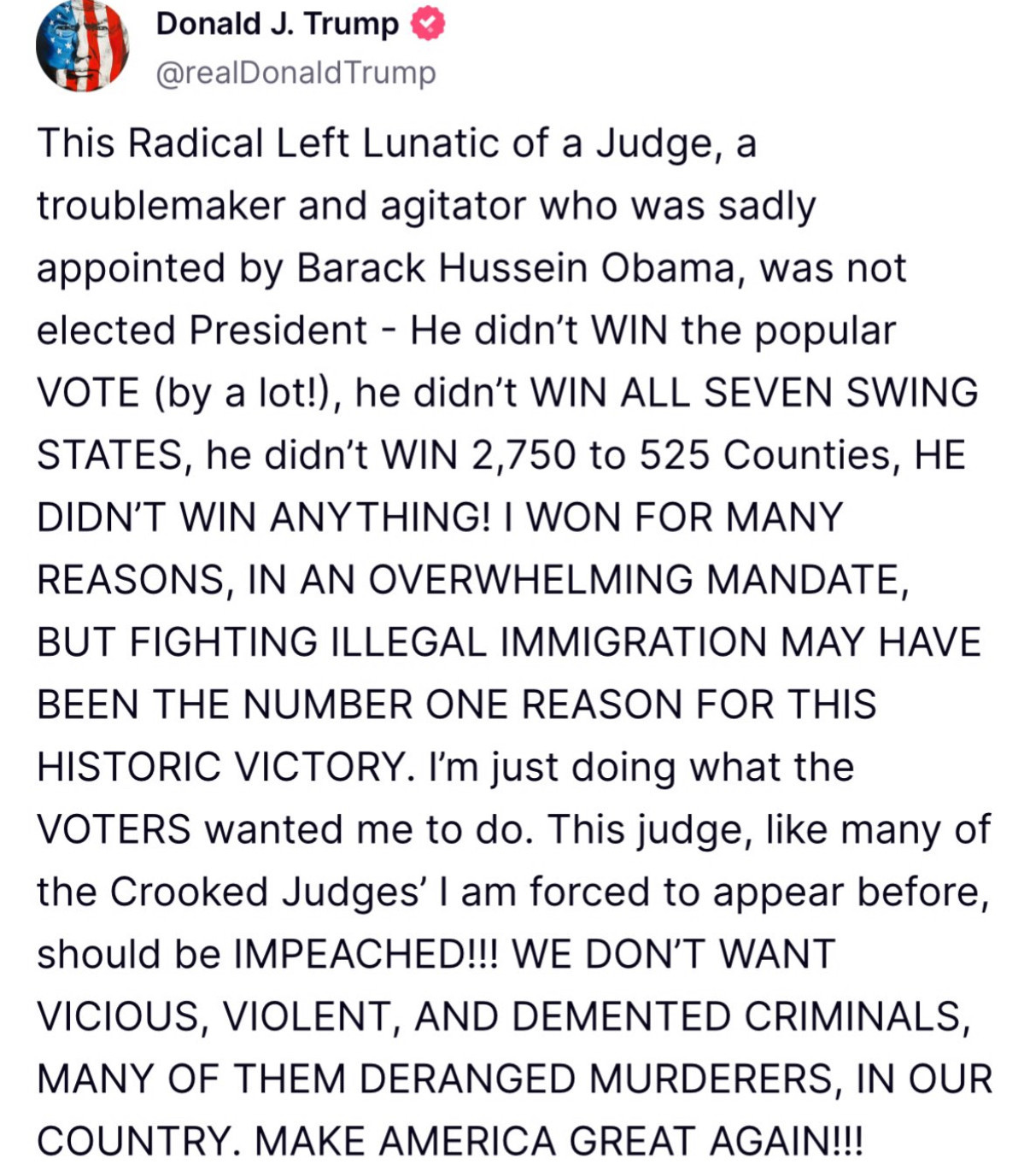People are sometimes puzzled when I talk about "authoritarian democracy".
This (translated into the language of an angry toddler) is what it means:
It's a malign form of democracy that treats dissent as anti-democratic & uses the authority of the people ("the VOTERS") to bulldoze checks on power.
This (translated into the language of an angry toddler) is what it means:
It's a malign form of democracy that treats dissent as anti-democratic & uses the authority of the people ("the VOTERS") to bulldoze checks on power.

Comments
https://www.journalofdemocracy.org/articles/the-new-competitive-authoritarianism/
He lays out a pretty convincing argument why the US system works much differently than the UK. In UK rule of law long preceded democracy. In US it was opposite. US currently backsliding into patronage
I can't help but notice that a few billionaires have inordinate power now. Just replace Elon with Carnegie.
Rehnquist 'All the Laws But One' lays out the pre 9/11 history of enablement laws in US. It's not good, and the institution of the Courts has backslid since his writing.
Also, they can accomplish things much faster (feature or bug? Not so sure)
https://www.foreignaffairs.com/united-states/path-american-authoritarianism-trump
https://bsky.app/profile/robertsaunders.bsky.social/post/3lkpy6vv7bc2u
It certainly isn't *liberal* democracy: it doesn't believe in checks & balances, minority rights, the rule of law or the concept of "loyal opposition".
But historically, that is only one version of democracy - & a comparatively recent one.
It's a principle: that "the people" ("demos") should have "power" ("kratos").
"Democrats" try to construct forms of govt that enact that principle.
But they have always disagreed on *who* the people are, or *how* they should wield power.
It treats dissent as an expression of democracy; recognises minorities as part of "the people"; & views free debate as necessary to democratic decision-making.
-that "the voice of the people is the voice of God"
-that minorities & dissenters are "enemies of the people"
-that a single party or leader can embody "the will of the people"
-that constraints on that leader are illegitimate.
We witnessed this in the UK after the Brexit vote, when the claim to be upholding "the will of the people" saw judges cast as "enemies of the people", MPs labelled "saboteurs" & Parliament suspended, charged with "thwarting our democracy".
We need to recognise it as something that can grow up within democracies, and that wins support by latching on to democratic ideas.
skywriter[dot]blue/pages/robertsaunders.bsky.social/post/3lkorq5lpqc2b